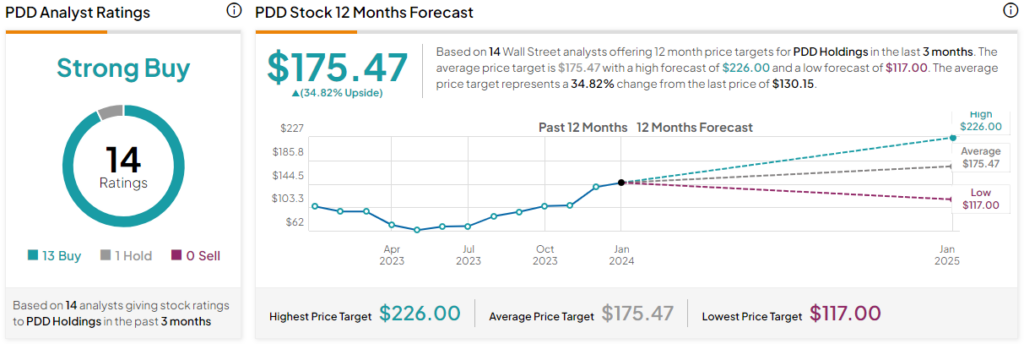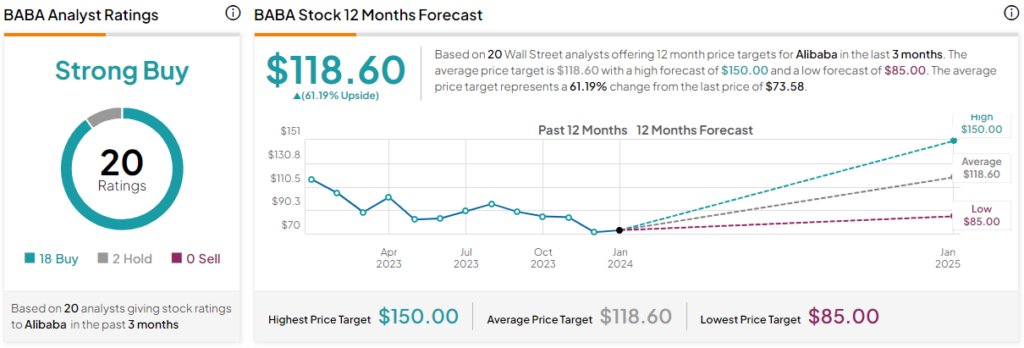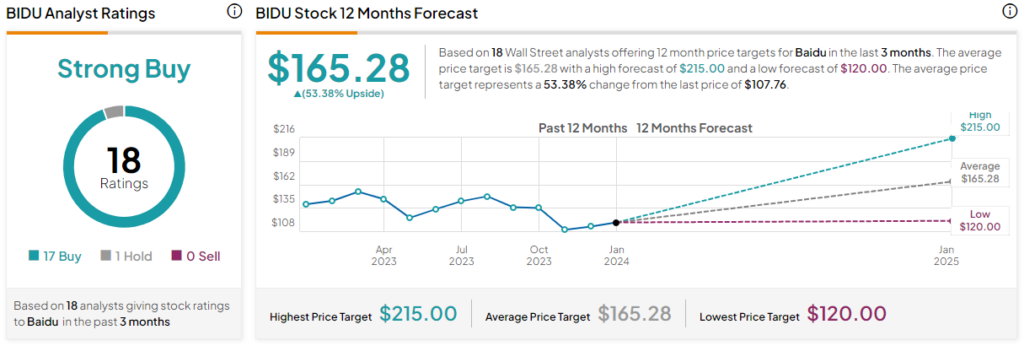Chinese stocks (and many of their investors) have been battered over the past few years, so much so that many investors have shunned them. Despite the seemingly never-ending pressure that most Chinese stocks have endured, more than a handful of Wall Street analysts continue to view a select few of them as intriguing investments.
Undoubtedly, there’s a high degree of geopolitical risk in investing in any Chinese stock. And as the Chinese economy continues battling headwinds, questions linger as to how much lower the broader basket of Chinese tech stocks can go.
Though Chinese stocks (especially the tech plays) are not everyone’s cup of tea, it’s hard not to be intrigued by them here if deep value is what you’re after. With talks of China stimulus, perhaps there is hope for the economy (and bruised Chinese tech stocks) to receive a much-needed boost.
Therefore, let’s tune into TipRanks’ Comparison Tool to check in with three U.S.-listed Chinese tech stocks that Wall Street thinks could gain in 2024.

PDD Holdings (NASDAQ:PDD)
First, we have PDD Holdings (best known as Pinduoduo), which has been one of the hottest Chinese stocks over the past two years. Shares have shot up more than 275% since ricocheting off their lows back in May 2022. Though the exponential past year of gains has put new highs within striking distance, there’s a new slate of potential hurdles that could spark a pullback.
On Monday, the stock nosedived by more than 8%, as Evergrande liquidation news sent jitters down investors’ spines. Despite the shocking headline, though, I remain bullish on PDD stock. That’s because its shopping app continues gaining in popularity while China continues to shed more light on its potential stimulus plans, which may have a “big impact,” according to ex-PBOC officials.
In any case, it’s hard to ignore the hype behind PDD’s Temu app, which has pretty much gone viral in the U.S. Indeed, consumer appetite for incredibly low-cost discretionary goods could stay strong as inflation and macro headwinds continue to impair our ability to spend on nice-to-have goods. Even as consumer balance sheets get stretched further, it’s tough to resist the allure of cheap goods and the ability to “shop like a billionaire,” even with a somewhat stricter budget.
All things considered, PDD looks that much more intriguing after the most recent pullback, as bearish headlines (Evergrande) are mixed in with bullish ones (China stimulus).
What is the Price Target for PDD Stock?
PDD stock is a Strong Buy, according to analysts, with 13 Buys and one Hold assigned in the past three months. The average PDD stock price target of $175.47 implies 34.8% upside potential.

Alibaba (NASDAQ:BABA)
As PDD stock gained ground on the back of Temu, Alibaba has continued to sink further into the abyss. At writing, shares are back to $73 and change per share and are closing in on the lows (of around $58) they briefly touched back in late 2022. Thus far, BABA stock bottom-fishers have been left with little to show for their patience. However, this could change in a hurry as the company looks to harness the power of generative artificial intelligence (AI) while looking to benefit from any stimulus.
With shares approaching a long-term level of support (in the mid-$60 range), I’m inclined to be bullish, but I do acknowledge that a stomach of steel will be needed to cope with the profound share price turbulence. That said, with Alibaba ex-CEO Jack Ma recently picking up $50 million in Hong Kong-traded shares, it’s somewhat easier to be in the bull camp.
In many ways, Alibaba seems to reek of deep value, but only time will tell when Mr. Market will finally reward the stock with some sort of sustained rally. For now, it seems like BABA’s stimulus-driven rally has been cut short, with Evergrande fears now hogging the headlines. Over the next year, look for potential AI announcements to help Alibaba finally move on from its epic sell-off.
What is the Price Target for BABA Stock?
Alibaba stock is a Strong Buy, according to analysts, with 18 Buys and two Holds assigned in the past three months. The average BABA stock price target of $118.60 implies 61.2% upside potential.

Baidu (NASDAQ:BIDU)
Speaking of AI, Baidu has been making headlines with its Ernie chatbot lately. Reportedly, the technology will be in the latest Samsung Galaxy S24 smartphones. Given the profound popularity of the Galaxy, I’d argue Baidu’s partnership could bear massive fruit and help the stock move on from its multi-year funk. The Ernie AI news alone leaves me quite bullish on a stock despite recent news of the Evergrande liquidation.
As we march further into 2024, sophisticated large language models (LLMs) could change the way we view our smartphones. Indeed, smartphones and AI seem like a match made in heaven. Additionally, as Baidu looks to innovate on the front of AI whilst staying within the guidances put forth by regulators, I view the company as potentially one of the cheapest AI stock picks in the market.
Of course, the “value” to be had in the stock may be nothing more than a hallucination if stimulus can’t jolt China’s pained economy. Additionally, geopolitical risks are always something to consider before buying any seemingly cheap Chinese stock with both hands.
What is the Price Target for BIDU Stock?
Baidu stock is a Strong Buy, according to analysts, with 17 Buys and one Hold assigned in the past three months. The average BIDU stock price target of $165.28 implies 53.4% upside potential.

The Bottom Line
It’s hard to be bullish on China’s tech plays as they face continued turbulence and negative economic headlines over the coming quarters. Nevertheless, though untimely, the following stocks could prove to be deep value plays in the grander scheme of things. Of the three Strong Buy-rated stocks, analysts see the most upside potential in BABA (61.2%) for the year ahead.










